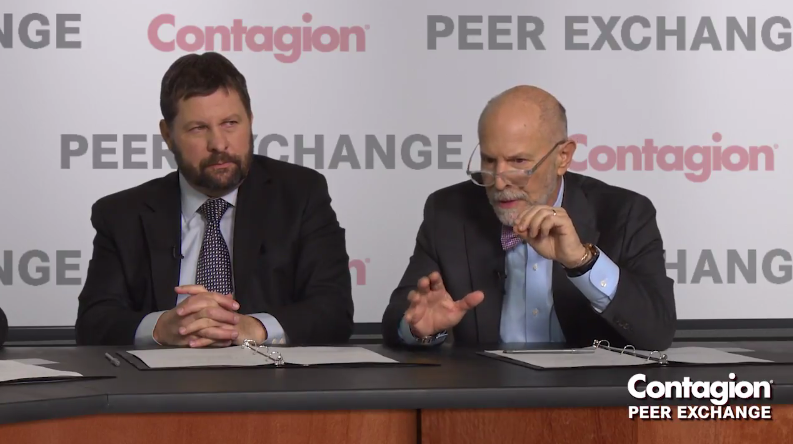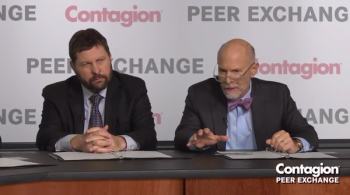
Gastrointestinal Infections
Latest News
CME Content



While a new FDA report shows antibiotic resistance remains low among many food-borne bacteria, some pathogens are increasingly showing multidrug resistance.

The message for clinicians is to be vigilant. Look for candidemia and C. difficile infection occurring together.

A recent study has shown that, compared with other antibiotics, tetracyclines may be associated with a reduced risk of Clostridium difficile infection (CDI).

About 500,000 Americans fall ill from Clostridium difficile infections every year.

Surotomycin fails to show benefit over vancomycin for the treatment of Clostridium difficile infection in a phase 3 trial.

Stay up-to-date on the latest infectious disease news by checking out our top 5 articles of the week.

Navigating the difficult road of Clostridium difficile (C. difficile) surveillance, reporting, and reimbursement.

CDC investigators link large norovirus outbreak in Catalonia, Spain with office water coolers.
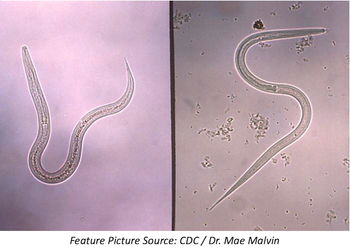
Despite thoughts that hookworm had been eradicated from the United States, a new study finds the parasite in Lowndes County, Alabama, begging the question—was it ever really gone?

Puppies sold by national pet store chain have been identified as the potential source of an ongoing multistate Campylobacter outbreak.

Gastroenteritis outbreak response requires effective environmental sampling and, here, we break down a seemingly promising new strategy.
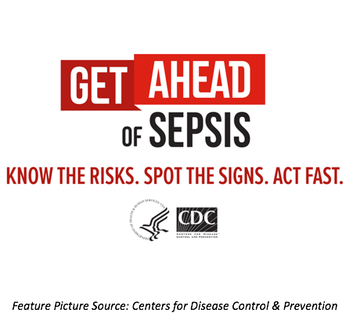
The CDC has launched an educational initiative called “Get Ahead of Sepsis,” which underscores the early recognition and timely treatment of sepsis.

When it comes to cleaning products that work against Clostridium difficile, a new study has found that wipes are better than sprays.
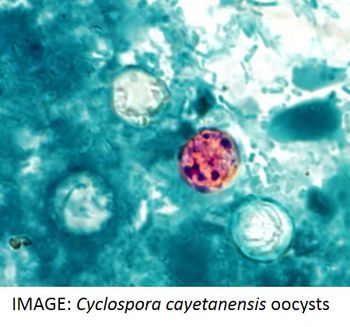
Health care providers are advised to consider a diagnosis of cyclosporiasis in patients with prolonged or remitting-relapsing diarrheal illness.

Researchers from Washington University, in St. Louis, find correlations between specific groups of intestinal viruses and the risk of type 1 diabetes.

With summer in full swing, the Centers for Disease Control and Prevention offers tips to prevent catching recreational water illnesses from pathogens such as Cryptosporidium, Escherichia coli, Giardia, Shigella, and norovirus.

New HPV vaccine recommendations from the World Health Organization, information on a new once-daily treatment for HIV, the potential underestimation of tick-borne diseases in the Western United States, norovirus outbreaks in California schools, and how reservoirs of latent HIV hinder the quest for a cure, make up the Top 5 articles for the month of June 2017.

As new antibiotics are not being developed fast enough to fight against drug-resistant bacteria, new research shows that probiotic bacteria found in cheese and yogurt may offer an effective alternative.

Kirk Hevener, PharmD, PhD, explains why narrow-spectrum antibiotics are more beneficial for treating C. difficile.

Gonzalo Bearman, MD, MPH, explains what is known about Clostridium difficile prevention and control.

Julian Hurdle, PhD explains why some patients experience recurrence of Clostridium difficile after treatment.
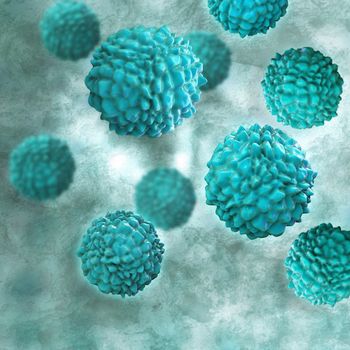
Norovirus outbreaks in California schools are causing thousands of students and staff to fall ill, and prompting officials to cancel events and close some schools.

Khalid Eljaaly, PharmD, MS, CAPPS, BCPS, explains his team’s findings on the link between carbapenems and superinfections & Clostridium difficile.
